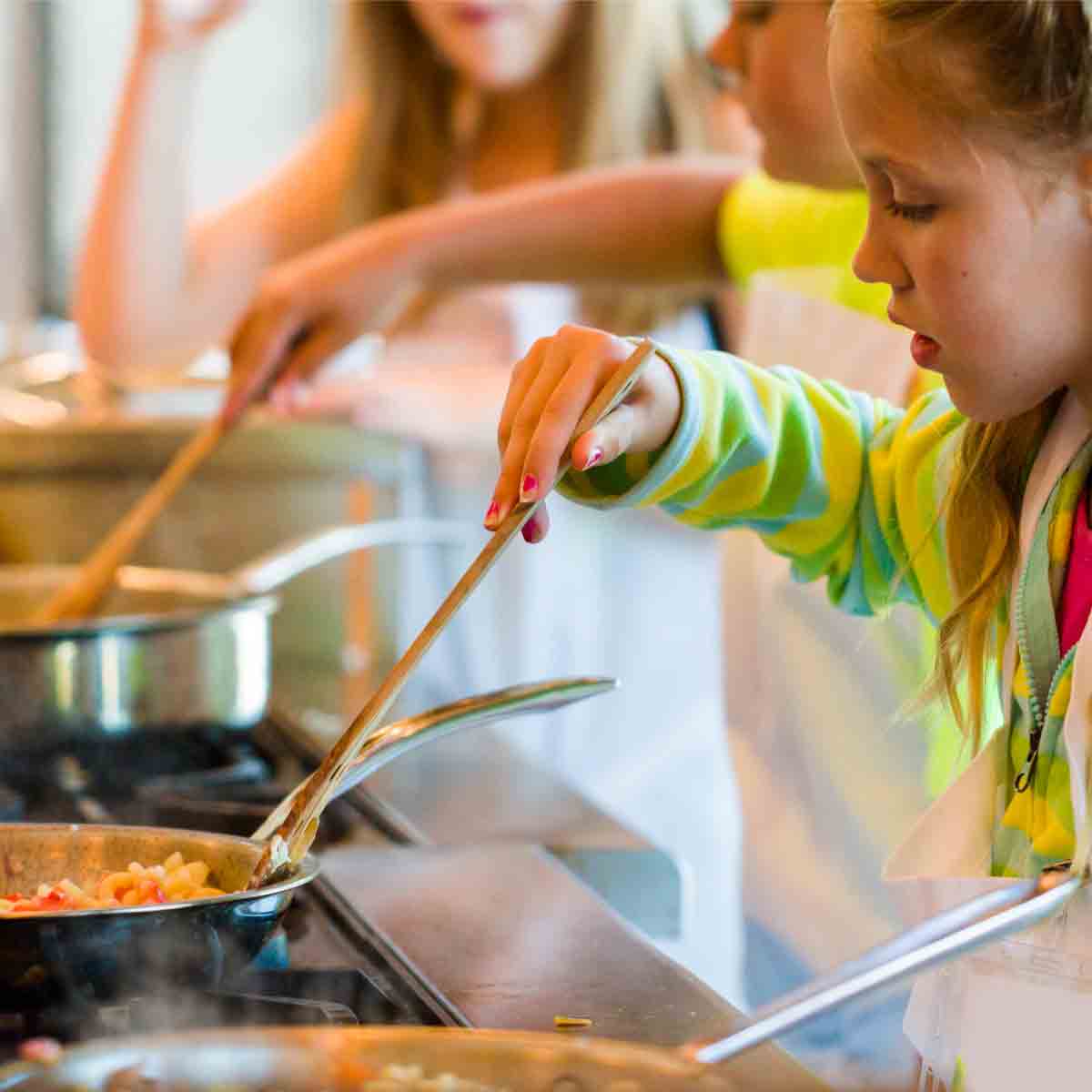Involving children in cooking activities: a potential strategy for directing food choices toward novel foods containing vegetables
Allirot et al. (2016) find that although children that are highly involved in food preparation are more likely to have better diet quality, few studies have been conducted on the positive effects of cooking on the food choices made by kids. This present study tested whether involving children in the cooking process influences their consumption levels, liking for the foods, hunger, and willingness to try new foods. Sixty-nine children helped prepare three vegetable-containing foods that they were unfamiliar with (apple/beetroot juice, zucchini tortilla sandwich and spinach cookies). The other (control) group consisted of 68 children who participated in a creative workshop. Later, all study participants were asked to select their afternoon snack. The options included three familiar and three unfamiliar foods (orange vs. apple/beetroot juice, potato vs. zucchini tortilla sandwich and chocolate vs. spinach cookie). The average number of unfamiliar foods chosen per child was higher in the group involved in the food preparation (the cook group) than the control group. Additionally, the overall willingness to taste novel foods and liking for the afternoon snack were higher in the cook group. There was no difference in overall food intake nor hunger scores between the two groups. In summary, child participation in cooking appears to increase their willingness to try new foods and guide their food choices towards foods containing vegetables.
[NPID: appetite, children, cooking, food choices, food neophobia, vegetables, trying new foods]
Year: 2016
 Navigation
Navigation






